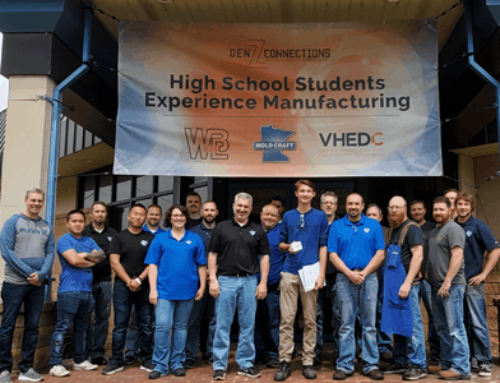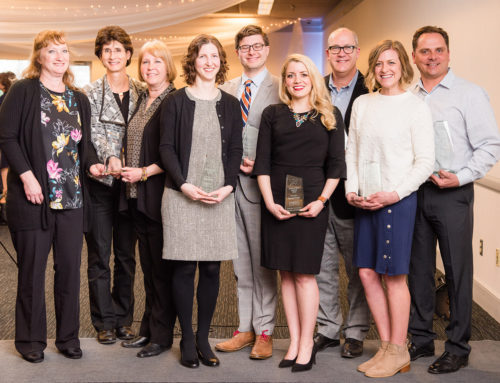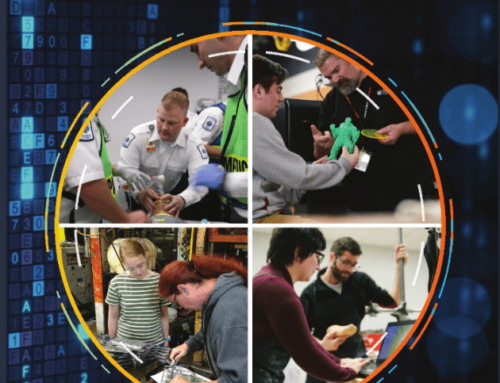Currently Minnesota employers do not have enough qualified candidates to fill many good-paying jobs. Preparing students for all the opportunities available to them will enable them to enjoy economic prosperity. It’s worth noting that
Vadnais Heights has 55 manufacturing firms that employ about 2,000 people, and the average annual salary is $75,972 – the highest among all industries in Vadnais Heights.
How can the community plan for a skilled workforce that will meet the needs of local employers and ensure their economic prosperity? And, how can it provide good training and career opportunities for its students – thus ensuring economic prosperity for them as well?
These are just a few of the conversation-starters queried within recent years by the Vadnais Heights Economic Development Corporation (VHEDC), local manufacturers and area educational institutions, and as VHEDC Executive Director Ling Becker says, “Some of our most effective conversations happen when local businesses, schools, community organizations and other stakeholders have opportunities to talk candidly with one another.”
In fact, those conversations turned out to be quite fruitful. The VHEDC created a Workforce Action Committee made up of key players from businesses and schools; the White Bear Lake School District was awarded a $250,000 grant fromUnited Way to create a Manufacturing Pathway at South Campus high school; funds were allotted for a Career & Employment Navigator at the high school for the students; and, the high school technology instructor, the career navigator and Du Fresne Manufacturing personnel created a job-shadowing program for students. Students have toured MME group, Schwing, Structural Wood, Herold Precision Metals and Innovize. Becker says, “The Manufacturing Pathway is an excellent example of community collaboration at its finest. The Pathway at White Bear Lake Schools is incredibly significant to the economic development of our local workforce. Manufacturers are noting that workforce shortages are a major hindrance to their continued growth. The opportunity the Pathway affords is a responsive approach to building partnerships between education and industry with a focus to prepare students not just for a job, but viable long-term careers.” Becker adds, “Make no mistake about it, the manufacturing industry is vital to our national, state and local economies. Minnesota is the home of more than 314,000 manufacturing jobs, which represents nearly 12 percent of all private sector jobs. In 2014, manufacturing had the second largest payroll among private-sector businesses in Minnesota, providing $19 billion in wages. In Vadnais Heights alone, 25 percent of all jobs are attributed to our manufacturing businesses.
Another key collaborator vital to the success of the VHEDC’s workforce goals is Century College. Century College has developed many programs that include internship experiences. The VHEDC Sponsored Internship Program with Century College provides $500 (3 credits) scholarships for up to four students, to be used for internships within the Vadnais Heights and VHEDC business community. One hundred and twenty hours of work is expected; work arrangements are made between the business and the intern. Sponsored Internships are now available in the following areas: Marketing/Sales, Visual Communications, Information Technology and Office Technology. The VHEDC recently opened up internship opportunities to White Bear Lake High School students, and it is planning to run the program throughout the school year and include other technical fields.
In addition, Century College is the first college in the region to install and implement a Digital Fab Lab and incorporate a Massachusetts Institute of Technology initiative across its curriculum in science, technology, engineering and math (STEM) areas. Nowadays, companies that digitally manufacture require skilled workers with a focus on higher-level computer design, simulation and automation. To keep up with a changing workforce, Century College plans to implement a new AAS degree program fall semester, to address evolving digital-based manufacturing environments.







Leave A Comment